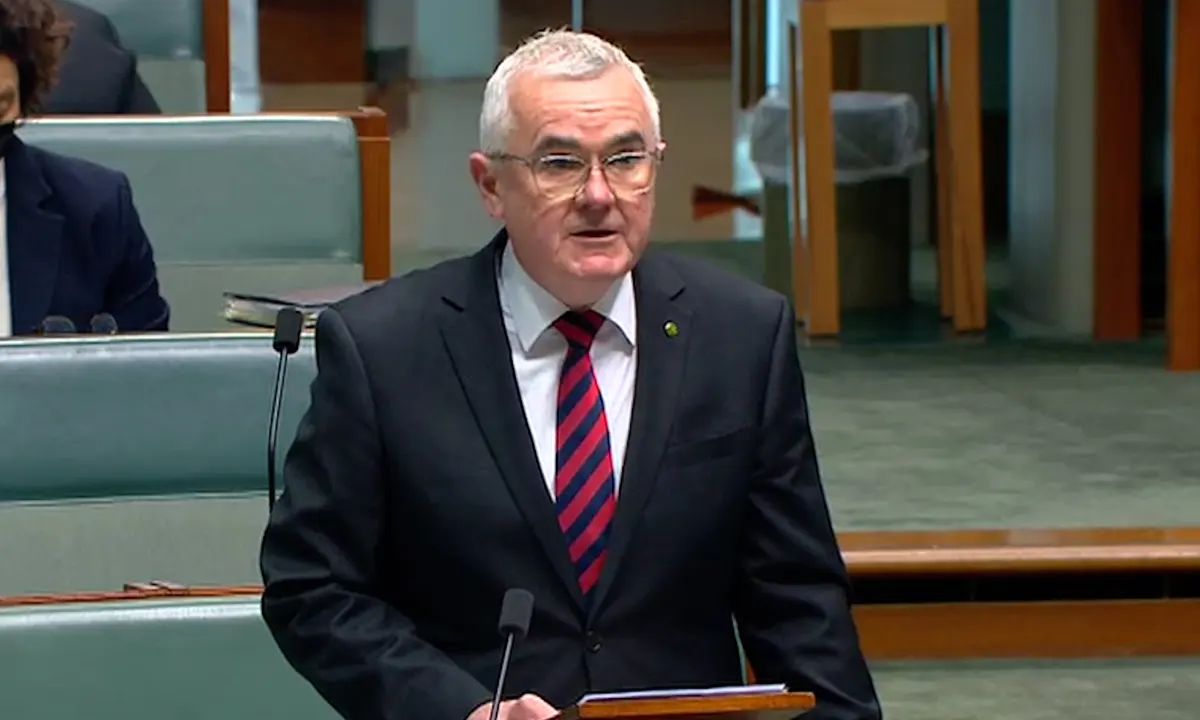Posted on: November 29, 2022, 07:00h.
Last updated on: November 29, 2022, 02:43h.
Andrew Wilkie, one of the leading anti-gambling voices in Australia’s Parliament, is looking for support for a new bill. He wants to crack down on video games that offer loot boxes, banning their sale to minors.

The initiative follows a recent announcement that Australia’s government is going to take a closer look at loot boxes and similar products inside video games. The loot boxes offer players a chance to receive specialty items, such as weapons or skills, with an in-game purchase.
Several countries have already determined that loot boxes are a form of gambling. That’s because players don’t know what they’ll get before receiving the item. Others have pointed out that everyone always receives some type of reward, and that purchasing the items isn’t a requirement.
Resistance is Futile
Belgium and several other countries have already decided that loot boxes equate to a form of gambling. A number of other countries, including the UK, aren’t so sure. Still, Wilkie is certain that change is needed in Australia, and doesn’t want to wait for the results of the paid parliamentary inquiry.
Wilkie presented his bill on Monday. In it, he claims that loot box mechanisms prey on the same impulses as gambling, and as a result, children will turn into gambling addicts. Therefore, he wants any game that has loot boxes, or similar systems, restricted to those over 18 years of age, the legal gambling age in Australia.
In addition, he wants to see warning labels explaining the risks of gambling associated with loot boxes. The text also demands that all loot box games be classified as R18+ or RC (refused classification) by the Australian Classification Board.
A video game with an “RC” classification cannot be sold in Australia, putting video game developers against the ropes. The bill would also require digital retailers and digital distributors to verify the age of anyone who buys a restricted game.
Australia’s Parliament hasn’t yet viewed the bill, but it is already finding support. At least one MP, the Liberal National Party’s Andrew Wallace, is adding his name to it, and more legislators will likely join.
It’s likely that the bill will find a quick path to the finish line, including approval. The gaming industry will put up resistance, but the current atmosphere of safer and responsible gambling will prevail.
Loot Box Debate Lingers
Several years ago, the Entertainment Software Rating Board, refused to classify video games based on loot boxes. The rating board in the US and Canada said, at the time, that the absence of a consensus on whether loot boxes constitute gambling was the foundation for its decision.
There are also extremely loose controls over the implementation and inclusion of the add-ons. This is likely to lead to change on a global scale. Video game developers have utilized the lack of oversight and the unclear status of loot boxes to their advantage in offering new in-game options.
Diablo Immortal is a good example of why controls are coming. The Activision Blizzard free-to-play video game includes loot boxes that, according to some, have required players to spend more than $100K in upgrades to create strong characters.
The gaming company has denied the allegations. But at the same time, it has reported record profits. Within just two weeks of its release, Diablo Immortal, which caught flack from gamers because of its aggressive in-game monetization, was already worth $24 million to Activision Blizzard.
